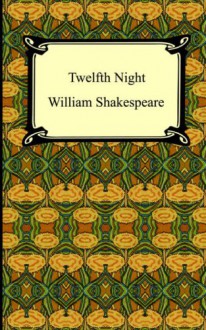One of Shakespeare's finest comedies, Twelfth Night was written at the same time as Hamlet and Troilus and Cressida, and whilst it shares their fascination with sex, death and confused identities, its exuberant comedy and linguistic inventiveness rises above the introspection of these plays....
show more
One of Shakespeare's finest comedies, Twelfth Night was written at the same time as Hamlet and Troilus and Cressida, and whilst it shares their fascination with sex, death and confused identities, its exuberant comedy and linguistic inventiveness rises above the introspection of these plays. Viola and her twin brother Sebastian are separated in a storm, which washes them both up at different points on the shores of Illyria. Believing each other to be dead, both attempt to survive by using their wits. Viola cross-dresses and enters the service of the lovesick Orsino, in love with Olivia, an heiress in mourning for the loss of her brother. Orsino's saucy young page Cesario (Viola) soon falls in love with "his" master, who tells "him", "all is semblative a woman's part". Unfortunately, whilst Viola falls in love with Orsino, Olivia falls in love with her alter ego, Cesario, whilst also being pursued at the same time by her pompous servant Malvolio. Olivia's house is also turned upside down by the antics of her drunken uncle, Sir Toby Belch, and the whole crazy situation reaches boiling point when Sebastian reappears.Despite the madcap plot, Twelfth Night remains one of Shakespeare's most complex and inventive comedies, fascinated with questions of cross-dressing, gender confusion, language and inversion, as well as retaining a darker edge to some of its laughter. --Jerry Brotton
show less






 11 years ago
11 years ago




 11 years ago
11 years ago